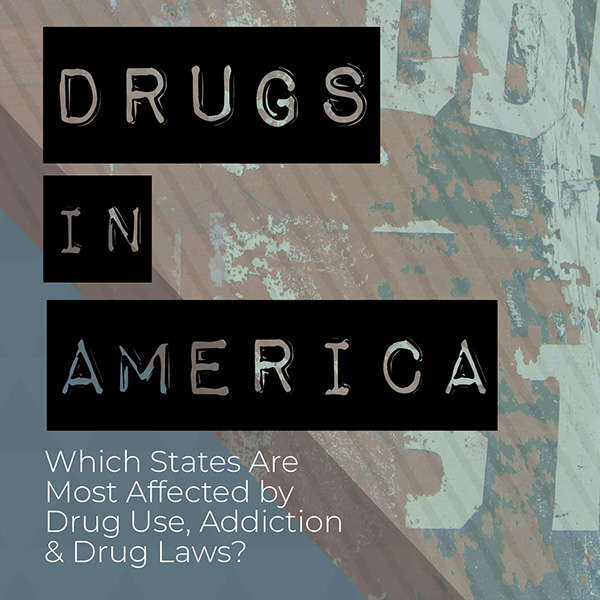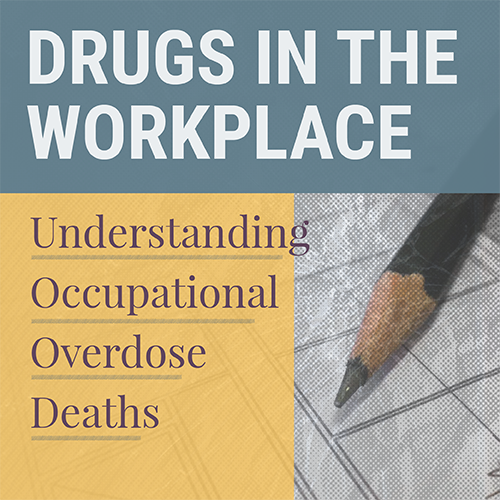US Drug Test Centers Blog
A Drug-Free Workplace Policy in the Employee Handbook?
According to the Council on Alcohol and Drugs, a drug-free workplace is a place of business where "all employees adhere to a program of policies and activities designed to provide a safe workplace, discourage alcohol and drug abuse and encourage treatment, recovery and the return to work of those employees with such abuse problems." An employer can achieve this by putting a drug-free workplace policy into place that outlines all rules and regulations regarding what happens if an employee is suspected of drug use, and the subsequent course of action. Because the workplace is one place where adult education can be required, a drug-free workplace policy can make employees more informed and create an all-around more positive work environment for everyone. You don't need a policy to tell you (and your employees) that coming to work under the influence of drugs and alcohol is wrong; so, do you really need one? First, let's go over what your policy should include.
What is a Drug-Free Workplace Policy?
Depending on what state you live in, having a written drug-free workplace policy might be required by law, says the Society for Human Resource Management. However, even if it isn't, it's still considered best practice. A policy should cover several points, including:
- When employees will be tested.
- Who the policy applies to.
- What they will be tested for.
- Why they will be tested.
- The various testing procedures.
- What happens if the test comes back positive.
- What counts as a refusal to submit to a test.
- The consequences of refusing to submit to a test.
The last two are especially important, because an employee may hold off on taking a test for a day or two in an attempt to let the substance get out of their system. This could possibly affect the test results. Therefore, the policy should clearly state how quickly an employee is expected to submit to a test and what exactly counts as a refusal. Still, how necessary is it to have these details laid out in a concrete policy? Do you really need one, and if so, why?
A Drug-Free Workplace Policy is Necessary for Testing
Depending on your state laws, a policy may be required. There are certain industries and jobs where a policy is required — for example, if your business is seeking a contract with the government. If you suspect an employee is under the influence, you'll likely want to ask them to submit to a drug test. However, if you do not have a policy in place, you will not be able to do so.
What if you're not legally obligated to have a policy? You still should, for one very important reason. While having a drug-free workplace policy is important largely to give you the right to test, it's also necessary to protect you as an employer. Having a policy concisely laid out means an employee is less likely to take legal action against you should you decide to require them to submit to a test in the future. For the same reason, you may want to seek legal counsel as you craft your policy. This will protect you against an employee attempting to accuse you an invasion of privacy, discrimination, defamation, and wrongful discharge.
Always be sure you use your policy fairly and consistently, holding everyone accountable to the same rules and requirements. You should also be sure you're keeping in line with civil rights and workers' rights laws at the local, state, and federal level. Know that whether or not your business is required to have a policy in place, depending on the state you live in, you might be rewarded for having one. To help encourage businesses to have a policy and program, some states have laws allowing businesses who do so to receive workers’ compensation insurance premium credits.
A Policy Will Help Decrease Injuries and Death in the Workplace
The United States Occupational Safety and Health Administration (OSHA) reports that in approximately 10% to 20% of work-related deaths, victims tested positive for drugs or alcohol. Furthermore, they found that 40% of all industrial workplace deaths were caused by substance abusers. It's not only being under the influence that proposes a serious danger. Workplace accidents caused by even just a hangover are five times likelier to injure a person.
Substance abuse in the workplace — both inebriation and the effects of coming out of an influenced state — impair your judgment and motor skills and severely reduce your alertness. A workplace policy could help combat this. Because a policy could help decrease injuries that happen in the workplace, it could also aid in decreasing workers' compensation claims. The National Institute of Drug Abuse says substance users cost their employers double the amount in compensation and medical expenses, compared to non-users. They're also five times likelier to file claims. Having an effective policy in place could not only decrease workplace accidents but save you a significant amount in claims.

A Policy Could Help Improve Productivity
Employees letting substance use affect their job could negatively impact the productivity of not only their own position but the positions of others. Substance abusers are estimated to cost employers $81 billion annually through missed work and lost productivity. Some research also says people who use drugs are twice as likely to switch employers three times or more in a single year, compared to non-users.
Show Your Employees You Care About Their Wellbeing
Reducing accidents and saving money is great, but none of it means much if it doesn't factor in your employees' happiness and sense of wellbeing in the workplace. Having a drug-free workplace policy isn't only about clarifying when and why people will be tested, and it isn't only about protecting you as an employer, either. It's also about ensuring the safety and comfort of everyone else on your staff, should they find themselves in the presence of a coworker who is under the influence. Drugs and alcohol affect not only the person using them but everyone in their life.
A Policy Shows You're Invested in Your Team
A drug-free workplace policy can add a much-needed layer of security to your place of business but should only be implemented after consulting an expert. At US Drug Test Centers, we have experience providing different drug-free workplace policies for a variety of industries. To learn more about implementing a drug-free workplace policy, contact US Drug Test Centers at 866-566-0261 or purchase a drug-free workplace policy online.






















